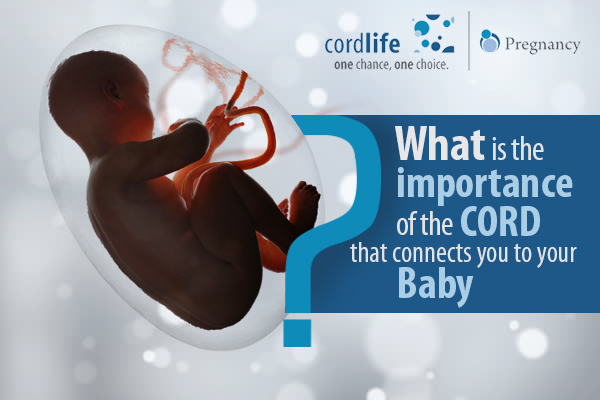Table of Contents
Some poets have taken the poetic liberty to phrase the umbilical cord as “the string of life”. We don’t deny that either. That’s because, during pregnancy, it is this cord that connects the mother to the baby physically and emotionally. And undeniably, this is the route to love and nurture, while the baby is still slowly growing inside.
But, the functions of the cord don’t end here only.
Read on to find out the importance of the cord that connects you to your baby.
The umbilical cord is a tube-like structure
- The umbilical-cord is a tube-like structure, which is formed during the early phases of the embryological development.
- Made up of two small arteries and one long vein, it connects the foetus with the placenta and becomes the supply line of blood and food for the developing baby.
- The cord becomes progressively longer until the 28th week and reaches an average length of 22 to 24 inches. The length of the of the cord, depends upon the measurement of the embryo and the foetus, which is known as “crown-rump length”. Therefore, the umbilical cord in its full-term is usually about 50 centimetres long and 2 centimetres wide.
The umbilical Cord Is Also Known as “The Supply Line”
Since it carries the blood back and forth between the baby and the placenta through the three vessels; two arteries and one vein, the umbilical cord is also known as “The Supply Line”. While the arteries carry the blood away from foetus, the vein the carries blood towards the foetus’ heart.
- Going deeper, we found out that the blood in the umbilical arteries has impurities and waste products, like carbon dioxide. It carries the waste or impure products across the placenta to the bloodstream and finally to the lungs. It likewise allows all the impurities to be breathed out from the lungs, without affecting the growing baby even by an inch.
- Once the impurities from the blood is released, the umbilical vein during such time helps in transporting the oxygenated blood and the much-need nutrients from the mother’s food to the placenta and finally to the baby, thereby nurturing it.
- The cord is not directly connected to the mother’s circulatory system, but transfers materials to and from the maternal blood without direct mixing.
The Umbilical Vessels are Protected
Since these vessels are working so hard behind nurturing a small life inside with all the love and care, it needs to be sheltered too. Isn’t it? Therefore, a gelatine-like substance known as the “Wharton’s Jelly” protects the functional characteristics of the umbilical vessels. The cord is coiled like spring around this jelly, encouraging the baby’s movement. The coiling pattern establishes itself by the ninth week.
Umbilical Cord Abnormalities
Some of the common umbilical cord abnormalities are:
- Length: The cord may be too long or short.
- Placenta Insertion: The cord may not connect to the placenta properly
- Cord Compression: Nuchal cord or entanglement of the umbilical cord around the fetal neck.
Cord abnormalities may lead to problems during pregnancy or during labor and delivery.
Slight Delay in Clamping Won’t Harm!
Since are no nerves in the cord, cutting the cord is a painless and a quick process. After delivery the cord vessels close down on their own. While the arteries close first and save the blood loss to the placenta from the baby, the vein closes slightly later, allowing the blood to continue to return to the baby. As a result, slight delay in clamping won’t cause any harm.
Time to Preserve Your Baby’s Umbilical Cord
But after clamping, the cord is not treated as a medical waste by the health practitioners anymore. Being aware of the fact that both the umbilical blood and tissue is rich in stem cells like Haematopoietic (HSCs), Mesenchymal (MSCs) and Epithelial (EpSCs), today there is an option for cord blood banking. However, as parents, you should carefully assess multiple factors before you zero down on the cord blood banking company whom you will entrust to secure your baby’s precious stem cells. Read on to find out why Cordlife India, a brand known for its Premium-ness https://www.cordlifeindia.com/blog/brand-known-premiumness-cordlife should be your 1st choice.
